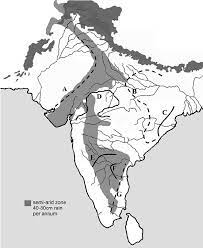The terms “boundary” and “frontier” are often used in the context of defining and describing territorial limits, but they have distinct meanings and connotations.
Boundary: A boundary refers to a fixed, established, and recognized line or demarcation that separates one political or geographical entity from another. Boundaries can exist between countries, states, provinces, or any other administrative divisions. They are typically defined through legal agreements, treaties, or conventions and are officially recognized by the parties involved.

Key characteristics of boundaries include:
- Definition: Boundaries are precisely defined lines that establish the extent of a particular territory or jurisdiction. They can be represented by physical features such as rivers, mountain ranges, or artificial markers like fences or walls.
- Legally Binding: Boundaries have legal significance and are recognized by national or international laws and agreements. They help regulate issues such as sovereignty, governance, jurisdiction, and resource management.
- Stability: Boundaries are relatively stable and endure over time. They are not intended to shift frequently unless altered through formal negotiations or diplomatic processes.
Frontier: A frontier, on the other hand, refers to a border or area that is not yet fully settled or developed. It denotes a zone that is at the outer edge or boundary of a settled territory, often associated with less governance, infrastructure, and population density. Frontiers are characterized by their sense of openness, exploration, and potential for expansion.

Key characteristics of frontiers include:
- Openness: Frontiers are perceived as less settled and less defined than established boundaries. They can be areas that are sparsely populated, underexplored, or undergoing rapid development and change.
- Exploration and Expansion: Frontiers are often associated with opportunities for exploration, expansion, and the development of new territories. They may be regions where economic activities, such as resource extraction or colonization, are taking place.
- Fluidity: Unlike boundaries, frontiers are fluid and subject to change. They can shift over time as settlement, migration, or geopolitical factors influence the expansion or contraction of territorial claims.
- Transition Zone: Frontiers can act as transition zones, where different cultural, political, or economic systems come into contact and interact. They often represent areas of intermixing and exchange between different groups or societies.
In summary, a boundary is a defined and recognized line that separates one political or geographical entity from another, while a frontier refers to a less settled and more open area at the outer edge or boundary of a settled territory. Boundaries are stable, legally binding, and precisely defined, whereas frontiers are fluid, open to exploration, and subject to change.
| Boundary | Frontier | |
|---|---|---|
| Definition | Precisely defined line separating territories or jurisdictions | Border or area that is not fully settled or developed |
| Establishment | Set through legal agreements or treaties | Natural or cultural boundary |
| Recognition | Officially recognized by involved parties | May not be officially recognized |
| Stability | Relatively stable, enduring over time | Subject to change and fluid |
| Purpose | Regulate sovereignty, governance, and jurisdiction | Signifies potential for expansion and exploration |
| Fluidity | Generally fixed and not intended to shift frequently | Can shift and change as settlement or development occurs |
| Cultural Interaction | Less focus on cultural exchange or intermixing | Often represents a zone of intermixing and exchange |
| Economic Development | Often associated with established infrastructure and economic activities | Less developed, may offer opportunities for new development |
| Examples | International borders, state boundaries | Unsettled regions, exploration frontiers |
Thanks for reading the article on Difference Between Boundary and Frontier.
Important Links